Mesulam Center Celebrates 30th Annual Alzheimer Day: Recognizing Scientific Achievement and Bringing Awareness to Early-Onset Dementia
By: Ananya Chandhok
Photography: Teresa Crawford
The Mesulam Center for Cognitive Neurology and Alzheimer’s Disease celebrated its 30th Annual Alzheimer’s Day on May 3, 2024, where researchers and community members came together to learn about recent accomplishments in the field, early-onset Alzheimer’s and community efforts raising awareness for those experiencing cognitive decline.
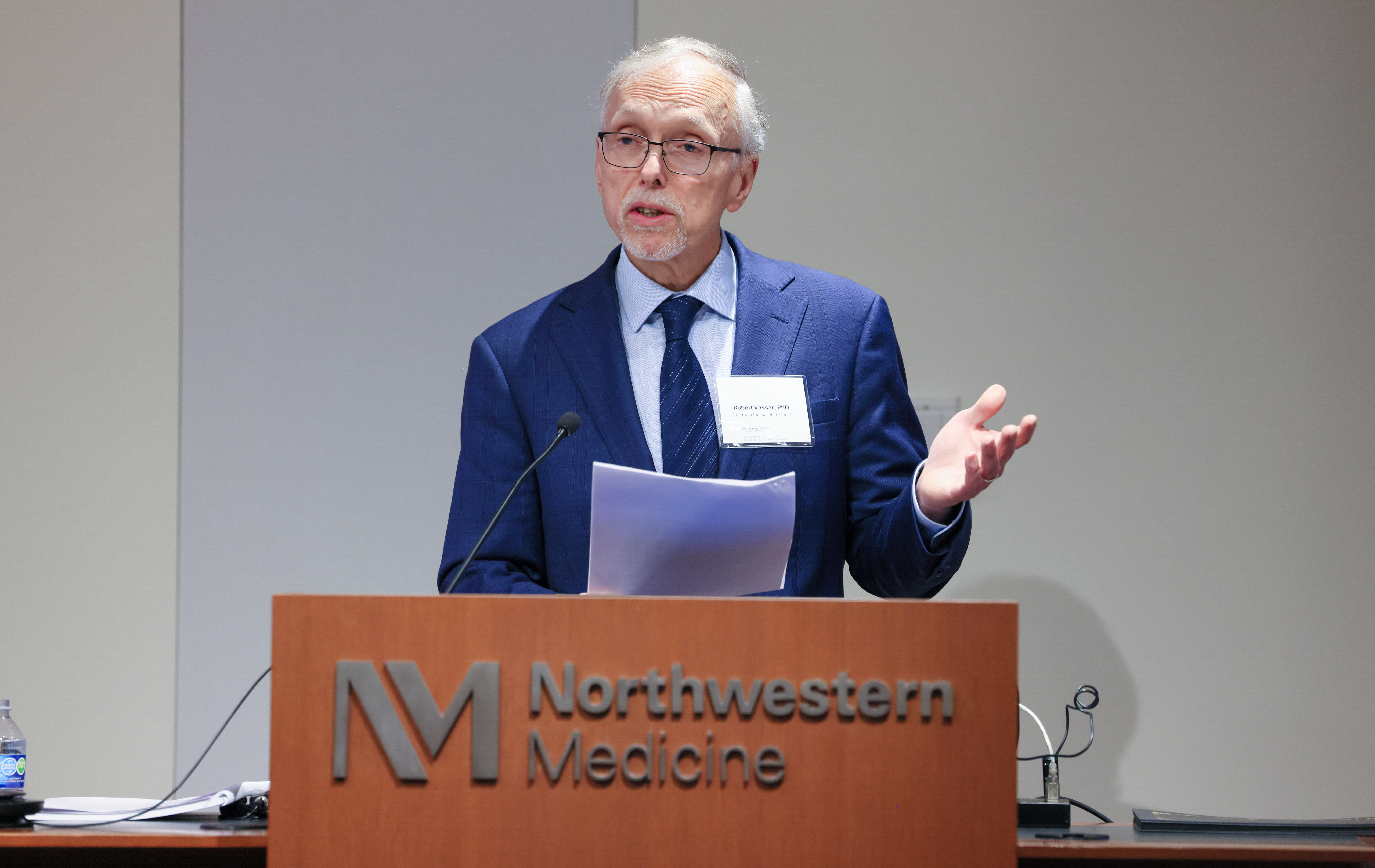 Robert Vassar, PhD, Director of the Mesulam Center, delivers welcome remarks at the 30th Annual Alzheimer Day
Robert Vassar, PhD, Director of the Mesulam Center, delivers welcome remarks at the 30th Annual Alzheimer Day
Welcome Address and Duncan Prize Awardees
The program began with a welcome address by Robert Vassar, PhD, Director of the Mesulam Center and Davee Professor of Alzheimer’s Research. He recapped the active initiatives at the Center, some of which included studying the effects of music on brain waves and the Brain Scholars Program — a clinical research program teaching youth about aging and dementia in partnership with schools in the Southside of Chicago.
Vassar also spoke to the Center’s equitable inclusion through “vigorous efforts to expand diversity at all levels of dementia training research.”
Recent pharmaceutical breakthroughs in the field were discussed too.
Clinical trial successes in understanding disease-modifying, amyloid amino therapies — Lecanamab and Donanemab — have provided a “new hope for Alzheimer’s disease,” Vassar said.
Since receiving FDA approval, Lecanamab is now being prescribed at the Neurobehavior and Memory Clinic.
With recent discoveries and increased trial enrollments, Vassar indicated the center’s growing role in the field.
“There’s much work left to be done, in therapeutic testing for dementia, and the Mesulam Center will continue leading the way,” Vassar said.
Vassar concluded his remarks by thanking our research participants and their families for their involvement in research.
“They are true heroes, who give selflessly to understand the underlying biology of devastating dementia,” Vassar said. “Our research would not be able to move forward without them.”
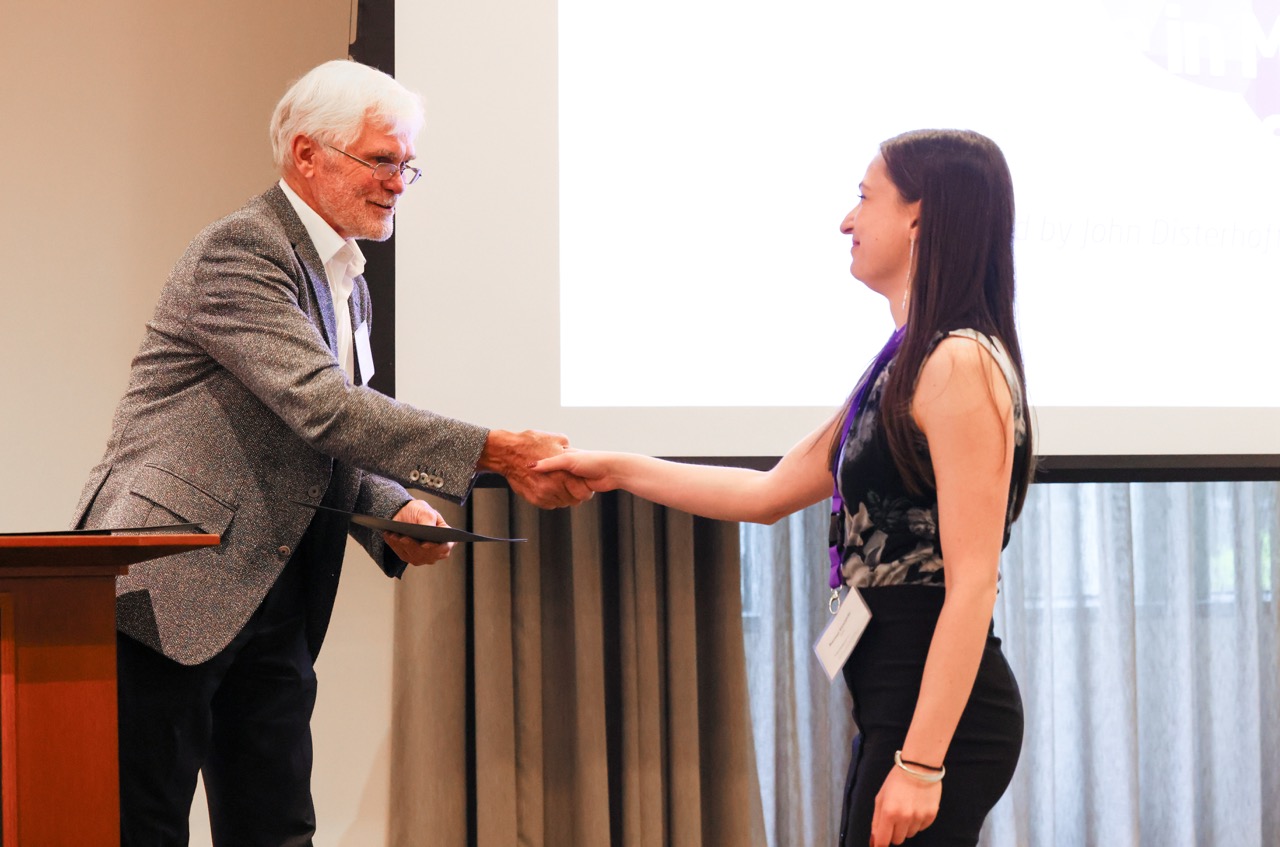 John Disterhoft, PhD, presents Rachel Keszycki with this year's Ducan Pirze
John Disterhoft, PhD, presents Rachel Keszycki with this year's Ducan Pirze
John Disterhoff, PhD — professor emeritus of Neuroscience — awarded the 2024 Duncan Prize to researchers studying dementia and Alzheimer’s disease.
The recognition was named after Carl Duncan, a Northwestern psychology researcher who contributed to early findings on how electrical stimulation affects memory.
The recipients for clinical and translational research were Allegra Kawles, Rachel Keszycki, Alyssa Macomber, and Molly Mather, and the basic sciences awardees were Lynn van Olst, Nalini Rao, and Zacharia Cross.
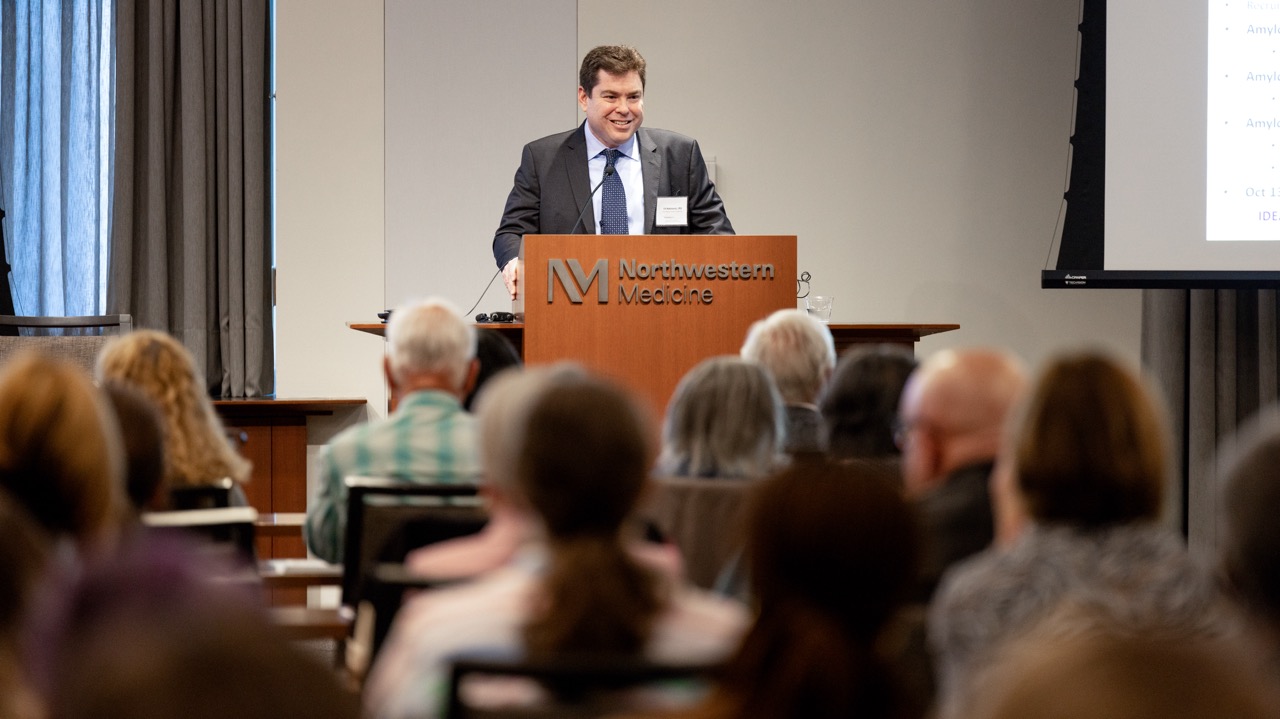 Gil Rabinovici, MD, Director of the Alzheimer’s Disease Research Center at the University of California, San Francisco presents this year's Mendelson Lecture
Gil Rabinovici, MD, Director of the Alzheimer’s Disease Research Center at the University of California, San Francisco presents this year's Mendelson Lecture
Mendelson Lecture: “The Molecular Era of Alzheimer’s Disease Diagnosis and Treatment”
Guest lecturer Gil Rabinovici, MD — Director of the Alzheimer’s Disease Research Center at the University of California, San Francisco — recapped how molecular research has contributed to the field.
Rabinovici covered how imaging advances helped detect Alzheimer’s disease early and how molecular markers helped researchers study relationships between protein build-up and cognitive decline.
He ended by discussing how imaging techniques have led to revolutionized drug development in detecting Alzheimer’s disease.
“What we found was that amyloid PET [scans] had a profound impact on patient management,” Rabinovici said. “Key elements of patient management, like the medications they were prescribed, or how they were counseled about safety and future planning changed in over 60% of patients.”
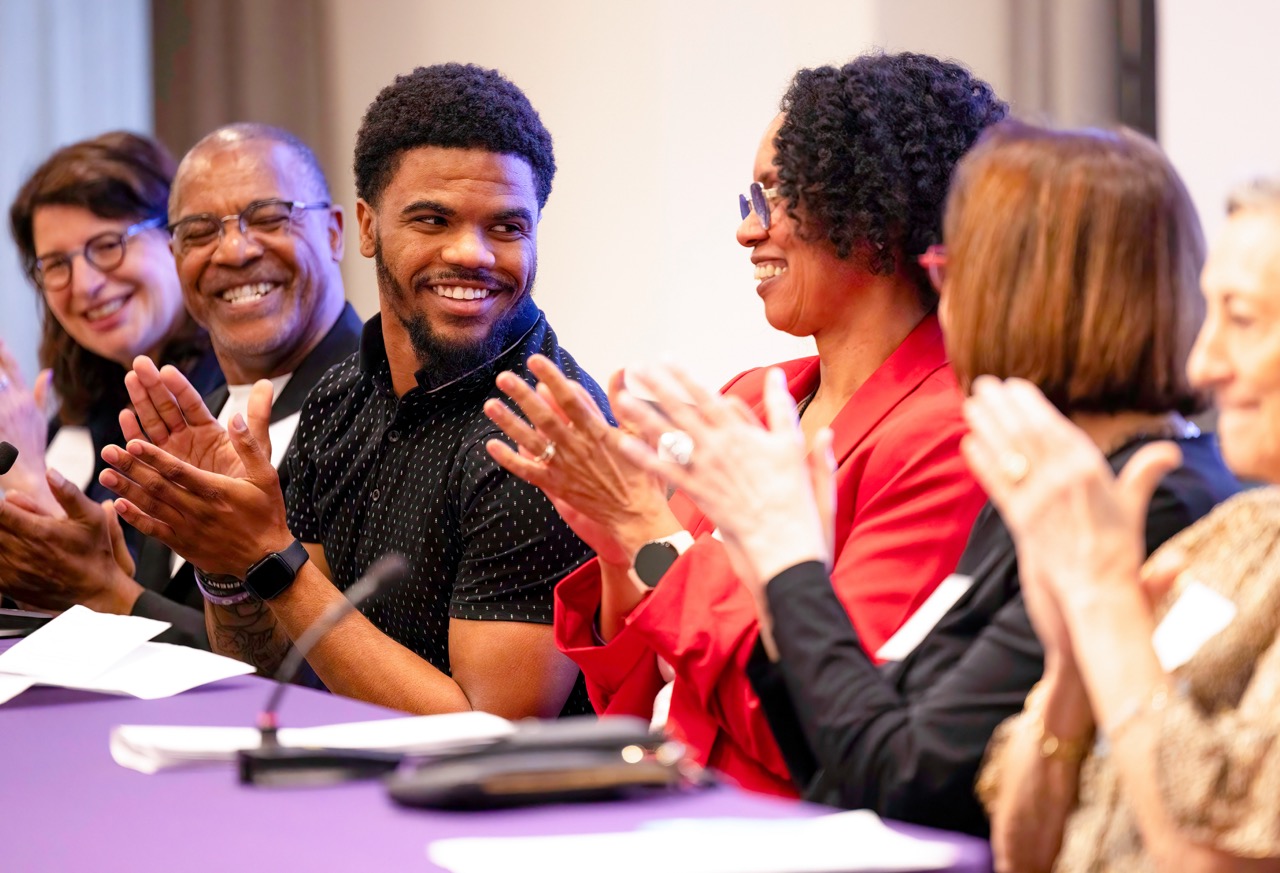 Panelists applaud during this year's Quality of Life Symposium.
Panelists applaud during this year's Quality of Life Symposium.
Quality of Life Symposium: Strides Made in Dementia Research and Prioritizing Early-Onset Awareness
Following the lecture was theQuality of Life Symposium, which focused on how different cognitive diseases, specifically younger-onset dementia, can have different presentations, struggles, and effects on family members and loved-ones.
“Symptoms represent where the disease is. Not what it is,” said Sandra Weintraub, PhD, professor of psychiatry and behavioral sciences at the Mesulam Center.
Weintraub addressed how researchers can narrow down what part of someone’s brain is affected by differentiating between cognitive symptoms, but this is one only step in a complete diagnosis.
“If the disease is in the back of the brain, you’ll have visual-spatial issues,” Weintraub said. “If it’s on the left, you’ll have language issues. If it’s in the hippocampus, you’ll have memory issues.”
Biomarkers have helped researchers identify how Alzheimer’s presents, but there’s still ways to go for developing testing for other dementia causes, Weintraub said.
Alzheimer’s disease’s classification into early-onset and late-onset was a major topic too.
Weintraub talked about how early-onset only affects 5 to 10% of the population, but people with this condition can potentially carry an autosomal dominant mutation, which makes the disease more likely to pass from one generation to the next.
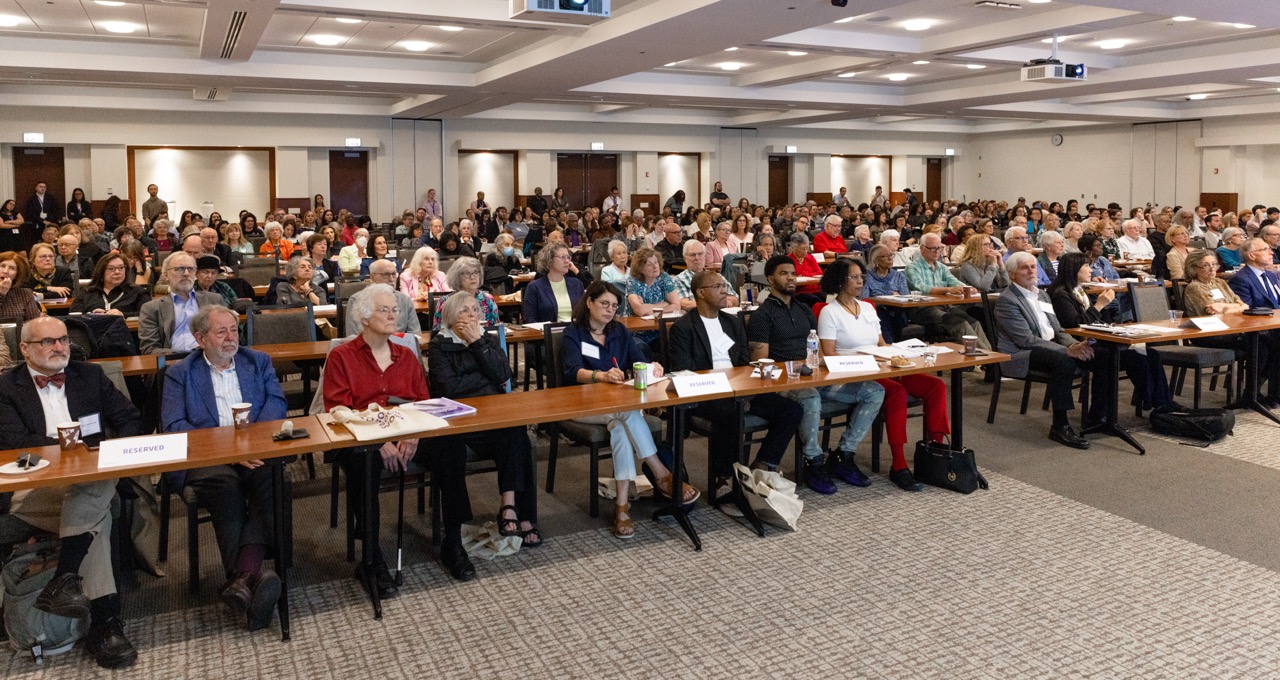
Alzheimer Day attendees during the morning presentations.
Darby Morhardt, PhD, LCSW, research professor and clinical social worker at the Mesulam Center, spoke about the research and awareness needed around the younger-onset because of how “differential” and “broader the diagnosis” is than late-onset.
With the broad spectrum effects early-onset can have, families and caregivers are affected in various ways too, Morhardt said.
“The challenge for families living with younger-onset dementia…is difficulty obtaining a diagnosis,” Morhardt said.
For many living with this diagnosis, there’s also a loss of identity. Some may have to stop working, which can be a source of self-esteem, Morhardt said.
Diana Cose, Founding Executive Director of Lorenzo’s House — an organization supporting loved ones of people with early-onset dementia — spoke about her deeply personal experience with her husband’s early-onset Alzheimer’s diagnosis.
Cose’s struggle to find support and resources, led her to develop the community she wanted during her family’s journey.
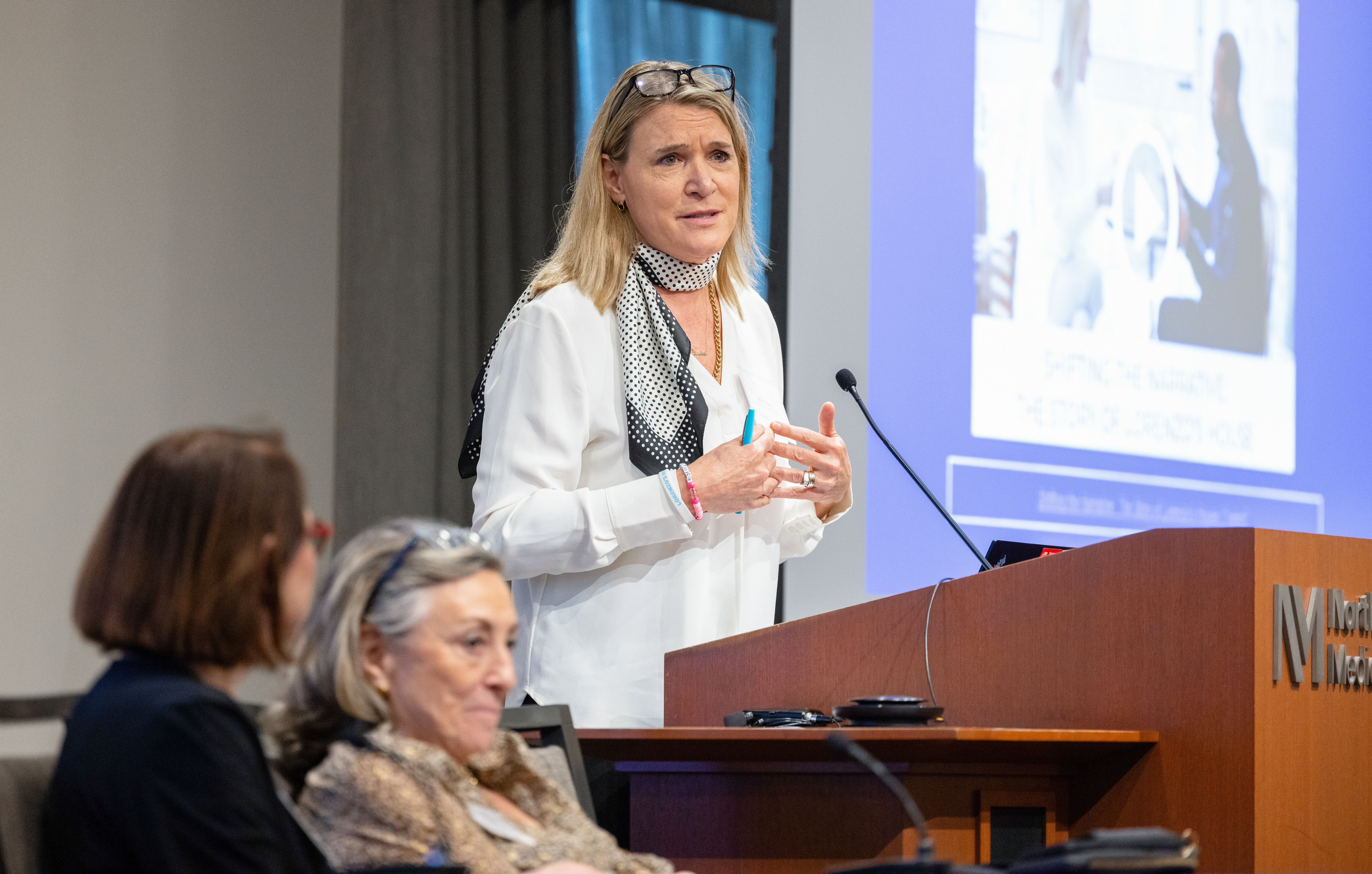 Diana Cose, founder of Lorenzo's House, presents at the Quality of Life Symposium.
Diana Cose, founder of Lorenzo's House, presents at the Quality of Life Symposium.
In an open letter to Lorenzo, her husband, Diana thanked him for allowing her to share their family’s story with children and spouses all over the country experiencing the same.
Cose shared how she intimately understood this gap and wanted to turn “isolation and stigma to connection and strength,” by providing access to resources she wished she had.
Three years after founding the community, Lorenzo’s House now works with over 2,000 families, across 45 states and nine countries, Cose said.
Lorenzo’s House also provides support for children, who understand the struggles that come with supporting family members experiencing early-onset dementia, Cose said.
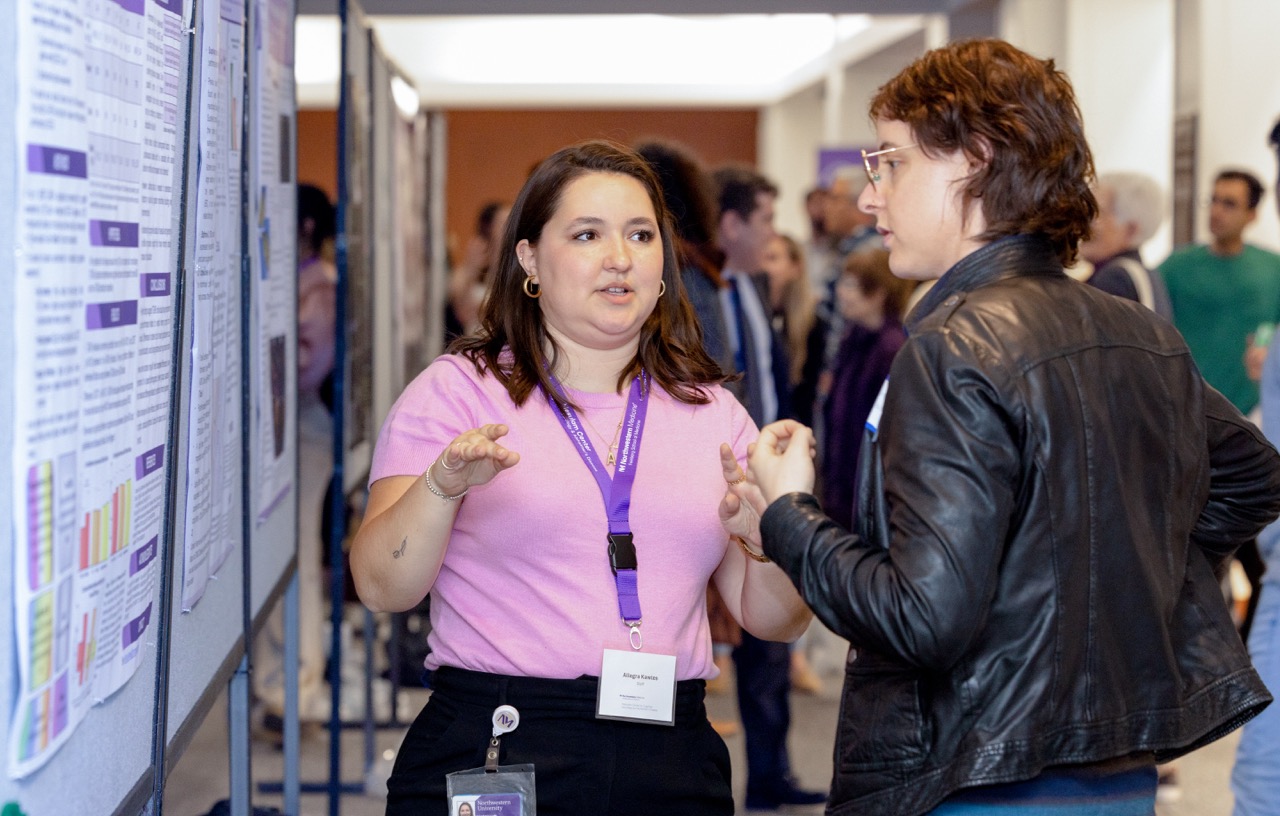
Duncan Prize winner, Allegra Kawles, discusses her research findings at the Poster Session.
Poster Session and Vendor Fair
Vendors from throughout the community shared resources for families and caregivers, who intimately understand struggles with Alzheimer’s.
Peck Ritchey, LLC, Eli Lilly and Company, and The Alzheimer’s Association were some of the groups that attended.
The event closed out with researchers showcasing recent findings from topics such as online intervention for primary progressive aphasia and how health disparities relate to dementia risk.
Allegra Kawles, clinical psychology PhD candidate, was one presenter who shared her lab’s work on understanding clinical symptoms that people with dementia present.
“What went wrong in the brain, where it went wrong, what part of the cell went wrong…that’s really what we focus on,” Kawles said.
She said there was a lot to take away, even as a researcher, after interacting with experts from other disciplines.
“Science and research is so important to make connections, continue learning, meet new people and learn new methods…because in order to make a discovery, you need to synthesize [research],” Kawles said.
Kawles felt humbled by research participants’ kindness and hopes she and her fellow researchers can continue to move the field forward for them.
“To be a part of research is to give,” Kawles said. “It’s a very selfless thing where you’re saying ‘I’m going to spend my time for years and potentially even donate my brain to this lab with the hope that someone in the future will benefit from this.”